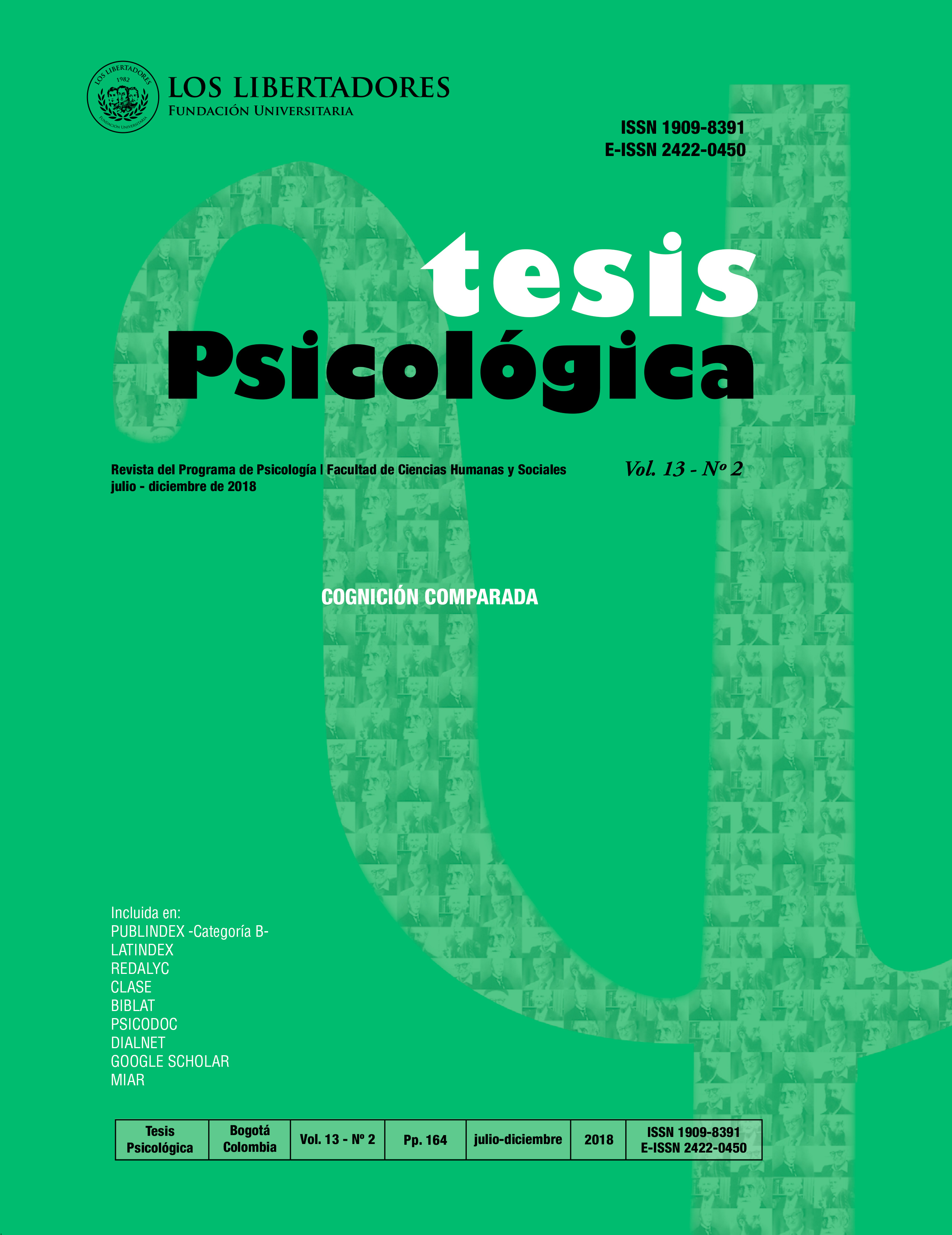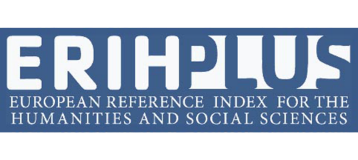The integration of memories in preschool children from a foraging model.
DOI:
https://doi.org/10.37511/tesis.v13n2a7Abstract
Temporal Weighting Rule (TWR) is a model of foraging that can make predictions about integration and comparison of long term memories. These predictions have been demonstrated recently in animals and humans. The aim of this study is to replicate and extend the TWR predictions in child using a search-find virtual task with interactive figures. Preschoolers children searched two consequences with two magnitudes in two successive containers A and B, in three experimental conditions (A<B, A=B and A>B). Finally, during a test they chose between A or B after 24h interval (A<B 24 h, A=B 24h and A>B 24h) or immediately after training (A<B 0h, A=B 0h and A>B 0h). According to each condition, children could obtain higher (A>B), less (A<B) or equal (A=B) magnitude for each consequence during first or second experience of training. The results showed that child make a choice based in the time elapsed and they show dynamic average of both phases. The results suggest that TWR is a model that allows to describe and predict memory integration of spatial and temporal events in animals and humans.
Downloads
References
Alvarado, A., Juárez, R., Cabrera, R., Strempler, E., & Vila, J. (2012). Efectos del tiempo y del valor subjetivo de las experiencias en niños preescolares. Acta de investigación psicológica, 2(3), 868-877.
Aron, A., & Aron, E. (2001). Estadística para psicología. Buenos Aires, Argentina: Prentice Hall/Pearson Educación.
Clayton, N. & Dickinson, A. (1998). Episodic-like memory during cache recovery by scrub jays. Nature, 395, 272-274. doi:10.1038/26216
16
Tesis Psicológica vol. 13- nº2 julio-diciembre/18 pp. 1-17 ISSN 1909-8391
Bouton, M. E. (1993). Context, time, and memory retrieval in the interference paradigms of Pavlovian learning. Psychological Bulletin, 114, 80–99. doi: 10.1037/0033-2909.114.1.80
Devenport, J. A., & Devenport, L. D. (1993). Time-dependent decisions in dogs (Canis familiaris). Journal of Comparative Psychology, 107(2), 169. doi: 10.1037/0735-7036.107.2.169
Devenport, L. D. (1998). Spontaneous recovery without interference: Why remembering is adaptive. Animal Learning & Behavior, 26(2), 172-181. doi: 10.3758/BF03199210
Devenport, J., & Devenport, L. (1998). Squirrel foraging behavior. In M. Harroway & G. Greenberg (Eds.), Comparative psychology: A handbook (pp. 513–519). New York: Garland Publishing. doi: 10.3758/BF03199210
Devenport, L. D., & Devenport, J. A. (1994). Time-dependent averaging of foraging information in least chipmunks and golden-mantled ground squirrels. Animal Behaviour, 47(4), 787-802. doi: 10.1006/anbe.1994.1111
Devenport, L., Hill, T., Wilson, M., & Ogden, E. (1997). Tracking and averaging in variable environments: A transition rule. Journal of Experimental Psychology: Animal Behavior Processes, 23(4), 450. doi: 10.1037/0097-7403.23.4.450
Devenport, J. A., Patterson, M. R., & Devenport, L. D. (2005). Dynamic averaging and foraging decisions in horses (Equus callabus). Journal of Comparative Psychology, 119(3), 352. doi: 10.1037/0735-7036.119.3.352
López-Romero, L. J., García-Barraza, R., & Vila, J. (2010). Spontaneous recovery in human instrumental learning: Integration of information and recency to primacy shift. Behavioural Processes, 84(2), 617-621. doi: 10.1016/j.beproc.2010.01.007
López-Romero, L. J., Alvarado, A., Tamayo, C., & Vila, J. (2011). La integración de experiencias pasadas y recientes determina la elección en humanos. Revista Mexicana de Investigación en Psicología, 3(1), 113-120.
López-Romero, L. J., Alvarado, A., Cabrera, R., Luna, D., & Vila, J. (2013). La elección en humanos como una función del valor subjetivo y distancia temporal de las experiencias previas. International Journal of Psychology and Psychological Therapy, 13(3).
17
Tesis Psicológica vol. 13- nº2 julio-diciembre/18 pp. 1-17 ISSN 1909-8391
Mazur, J. E. (1996). Past experience, recency, and spontaneous recovery in choice behavior. Animal Learning & Behavior, 24(1), 1-10. doi: 10.3758/BF03198948
Nelligan, M. (1969) Psicología de la Inhibición. Monterrey N. L. México. Herrero Hermanos.
Russell, J., & Hanna, R. (2012). A minimalist approach to the development of episodic memory. Mind & Language, 27(1), 29-54. doi: 10.1111/j.1468-0017.2011.01434.x
Spear, N. (1973). Retrieval of memory in animals. Psychological Review, 80 (3), 163-194. doi: 10.1037/h0034326
Strempler-Rubio, E., Vila, J., Alvarado, A., & Juárez, R. (2015). Evaluación de la Memoria Tipo Episódica en preescolares empleando una tarea con perspectiva egocéntrica. Revista de Psicología, 24(2). doi: 10.5354/0719-0581.2015.37650
Zamora, A. J., López, M. E., Vila, J., & Cabrera, R. (2012). Cantidad, lugar y tiempo determinan estrategias de búsqueda de alimento de palomas. Acta de investigación psicológica, 2(3), 858-867.
Additional Files
Published
Issue
Section
License

This work is licensed under a Licencia Creative Commons Atribución-NoComercial-













